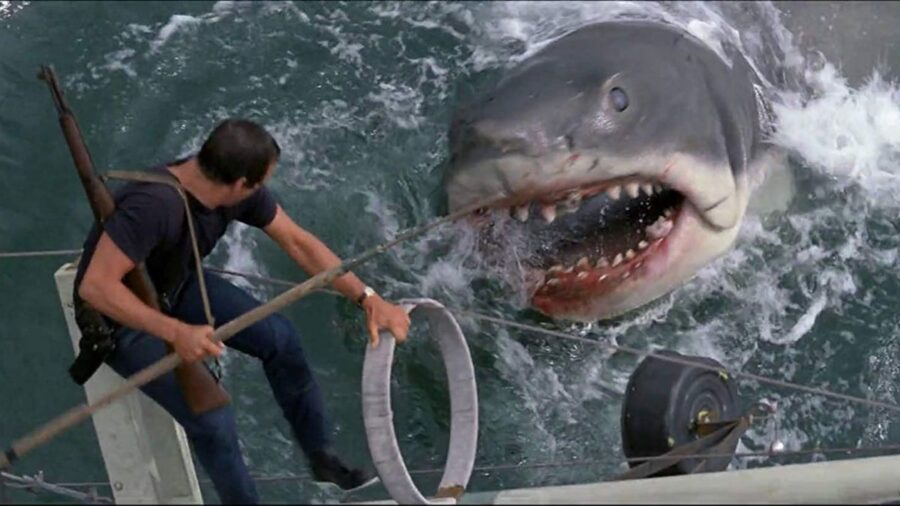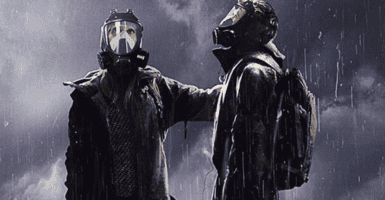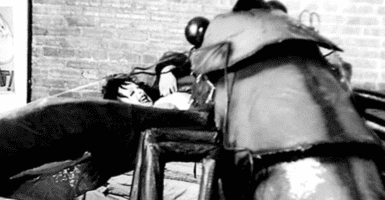Steven Spielberg Apologizes For His Best Film

The groundbreaking shark thriller film Jaws put director Steven Spielberg on the map. It became a timeless classic in the horror genre. It created the very concept of a summer blockbuster movie. It also resulted in Americans killing sharks to the point where populations dropped by between 65% and 90%. According to the New York Post, Spielberg says he “truly and to this day regret[s] the decimation of the shark population because of the book and the film. I really, truly regret that.”
In an interview with BBC Radio 4, Steven Spielberg spoke about how Jaws‘ release in 1975 brought about a huge uptick in trophy hunting against all species of sharks. The movie is blamed for giving sharks a reputation for being man-killers, despite the fact that, on average, there are only about 46 confirmed shark bites in the world per year. Of those 46, about seven shark bites are fatal. This average comes from data collected on all confirmed unprovoked shark attacks between 1958 and 2018.

Sharks, despite how Steven Spielberg portrayed the titular great white in Jaws and its three sequels, do not specifically target humans. Studies show that they usually attack when they mistake humans for one of their regular food sources or when they’re threatened by the humans’ actions. They do occasionally attack a human specifically to hunt them, but that is a very rare occurrence.
The success of Jaws led Steven Spielberg onto a decades-long, unprecedentedly successful directorial career. Before his latest semi-autobiographical movie, The Fabelmans, his filmography has been full of success after success. The movies he’s directed include genre-defining films such as Raiders of the Lost Ark, E.T. The Extraterrestrial, Jurassic Park, and Saving Private Ryan. His misses, such as 1941 and The Terminal, are few and far between. Some of his poorly-received films even became cult classics in their own right, such as Hook, which starred Robin Williams and Dustin Hoffman.
Steven Spielberg says he “truly and to this day regrets the decimation of the shark population because of the book and the film. I really, truly regret that.”
But Steven Spielberg set off something else after releasing Jaws in 1975. The frenzy of shark hunting that rose in the wake of the film, and its three sequels, ended up culling sharks to a never-seen-before degree. The aftermath led to a 65% decrease in the tiger shark population, a 79% decrease in the great white shark population, and an 89% decrease in the hammerhead shark population. Since then, multiple areas of the world made it illegal to hunt great white sharks, including California, South Africa, New Zealand, and Australia.
The decline in shark population wasn’t caused by Steven Spielberg alone, however. The huge increase in commercial fishing in the past decades has also led to the deaths of sharks in large numbers. While for the most part sharks aren’t specifically targeted by commercial fishing, they’re often killed while fishing ships target fish that are most sharks’ prey. Studies have found that sharks’ common hunting ranges overlap with commercial fishing areas by as much as 80%.
Despite not being the only reason for the decline in the shark population, Steven Spielberg has done his best to make up for the impact he’s made on sharks with Jaws. He’s become a huge proponent of ocean conservation. He has also told the BBC that he fears sharks are “mad” at him for the effect he’s had on their population.












